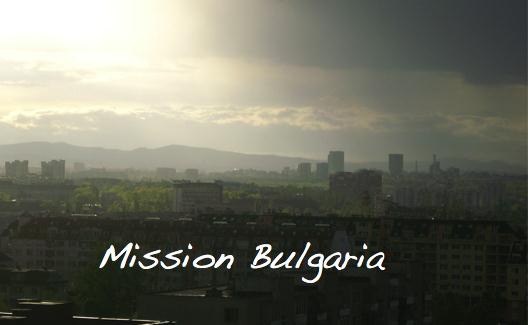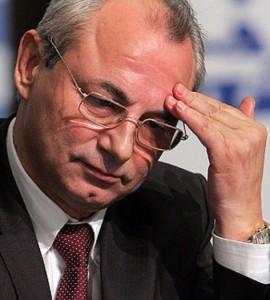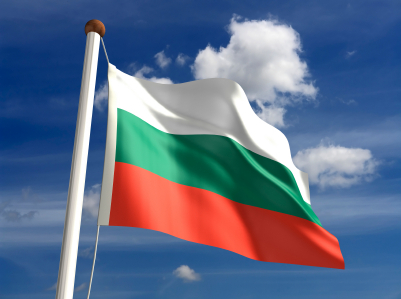Bulgarian Churches in North America: The Unrealized Spiritual Harvest as a Paradigm for Cross-Cultural Ministries among Migrant and Disfranchised Ethnic Groups in America Today
 ….A closer examination of the ministry and structure of the network of Bulgarian churches in North America will give answers to essential issues of cross-cultural evangelism and ministry for the Church of God. Unfortunately, until now very little has proven effective in exploring, pursuing and implementing cross-cultural paradigms within the ministry opportunities in communities formed by immigrants from post-Communist countries. As a result, these communities have remained untouched by the eldership and resources available within the Church of God denomination. There are presently no leaders trained by the Church of God for the needs of these migrant communities. Thus, a great urban harvest in large metropolises, where the Church of God has not been historically present in a strong way, remains ungathered. Although, through these communities, the Church of God has the unique opportunity to experience the post-Communist revival from Eastern Europe in a local Western setting… (p.84, Chapter III: Contextual Assessment, Historical Background, Structural Analyses and Demographics of Immigration in a Paradigm for Cross-Cultural Ministries among Migrant and Disfranchised Ethnic Groups in America Today) Read complete paper (PDF)
….A closer examination of the ministry and structure of the network of Bulgarian churches in North America will give answers to essential issues of cross-cultural evangelism and ministry for the Church of God. Unfortunately, until now very little has proven effective in exploring, pursuing and implementing cross-cultural paradigms within the ministry opportunities in communities formed by immigrants from post-Communist countries. As a result, these communities have remained untouched by the eldership and resources available within the Church of God denomination. There are presently no leaders trained by the Church of God for the needs of these migrant communities. Thus, a great urban harvest in large metropolises, where the Church of God has not been historically present in a strong way, remains ungathered. Although, through these communities, the Church of God has the unique opportunity to experience the post-Communist revival from Eastern Europe in a local Western setting… (p.84, Chapter III: Contextual Assessment, Historical Background, Structural Analyses and Demographics of Immigration in a Paradigm for Cross-Cultural Ministries among Migrant and Disfranchised Ethnic Groups in America Today) Read complete paper (PDF)
How to Start a Bulgarian Church in America from A-to-Z
Mission Bulgaria 2005-2012 Completed
 We are currently finalizing our Mission Bulgaria project through a seven-year long commitment, which has touched the lives and ministries of over 250 local churches in the country of Bulgaria. Along with these congregations, our international ministry team has worked with the Bulgarian Diaspora churches in the United Kingdom, Cyprus, Spain, Germany and France. Six Bulgarian churches are currently operating in Cyprus and four in the U.K., as there are projections for the registration of other Bulgarian churches as well. It has been a journey worth taking.
We are currently finalizing our Mission Bulgaria project through a seven-year long commitment, which has touched the lives and ministries of over 250 local churches in the country of Bulgaria. Along with these congregations, our international ministry team has worked with the Bulgarian Diaspora churches in the United Kingdom, Cyprus, Spain, Germany and France. Six Bulgarian churches are currently operating in Cyprus and four in the U.K., as there are projections for the registration of other Bulgarian churches as well. It has been a journey worth taking.
In relation to our ministry work in Bulgaria in the period of 2005-2012, among many others we’ve completed these seven milestones:
1. The publication of a complete revision of the Bulgarian Bible
2. Completing a new literal translation of the Bulgarian New Testament from the original Greek including the four gospels, acts, epistles, and the apocalypse
3. Establishment of the Bulgarian Chaplaincy Association with the special recognition of the US Department of State
4. Foundation of the Masters of Chaplaincy Ministry Program for Eastern Europe
5. Our national X event for youth every summer since 2005, which is accompanied with a Bible Camp for young ministers and a national mobile educational strategy
6. Building a broadcasting network which supports LIVE streaming of services and events for over 20 Bulgarian congregations every week
7. Implemented a long-term church planting proposal for establishing Bulgarian ethnic congregations outside of Bulgaria
After completing 7 years of ministry in Bulgaria, we are publishing a detailed overview of our work and results in a soon to be published monograph called simply Confessions. This new book speaks of the lessons we’ve learned in the ministry and issues of church and politics within the religious life of the country we’ve struggled to resolve. It addresses:
- The separation of church and politics of false religiosity
- Entering an organic relationship with God
- Depending fully in the ministry of the Holy Spirit
- Renvisioning the reality of the Kingdom
- Raising a new Pentecostal generation
- Reliving His glory
- Leaving a legacy worth remembering
As we are celebrating our 7-year long accomplishment of Mission Bulgaria, we are reminded that in 2013 God is doing a new thing.
Bulgaria’s ethnic party leader attacked by armed assailant
 BBC World News, Sofia – BULGARIA
BBC World News, Sofia – BULGARIA
A man put a gun to the head of the leader of Bulgaria’s ethnic Turkish party during a televised conference.
Ahmed Dogan, leader of the Movement for Rights and Freedoms (MRF) was unharmed and the unidentified man was wrestled to the ground by security guards. The incident happened on Saturday at a party congress in the capital Sofia.
Interior Minister Tsvetan Tsvetanov said the attacker tried to fire two shots but “most likely the gun misfired”. He also said the assailant had a criminal record for drugs possession, robberies and hooliganism. Police arrested the attacker, a 25-year-old from the Black Sea town of Burgas, who was also carrying two knives.
The liberal MRF party represents ethnic Turks and other Muslims, who make up about 12% of Bulgaria’s population of about seven million. Mr Dogan, 58, has lead the party for almost 25 years. He returned to the party conference a few hours after the attack and was given a standing ovation.
President Rosen Plevneliev said in a statement: “Bulgarian society is traditionally known for its tolerance, mutual acceptance and respect between different ethnic groups and religions. “Such an act is unacceptable in a democratic state.” Attacks on politicians are rare in Bulgaria, but in 1996, former Prime Minister Andrei Lukanov was found shot dead near his home in Sofia
Ethnic Minorities in Bulgaria
 The country of Bulgaria was established in 681 A.D. on the Balkan Peninsula. Through the centuries of its existence, ethnic and religious groups have crossed its territory, reforming its borders and creating a multicultural context where more than 100 languages and dialects are spoken. Today the Bulgarian people live along with several ethnic minorities in the clash between Christianity, Muslim and Judaism.
The country of Bulgaria was established in 681 A.D. on the Balkan Peninsula. Through the centuries of its existence, ethnic and religious groups have crossed its territory, reforming its borders and creating a multicultural context where more than 100 languages and dialects are spoken. Today the Bulgarian people live along with several ethnic minorities in the clash between Christianity, Muslim and Judaism.
Bulgaria could be referred to as a country of emigration, since there were several major migration waves mostly toward Turkey during the 20th century. Nevertheless, the population’s ethnic composition remains relatively homogeneous, 85.7% being Bulgarians, yet characterized by ethnic and religious diversity among the rest of its population. The two major ethnic groups are Turks and Gypsies, which represent 9.4% and 3.7% of the Bulgarian nation. The number of Jews has decreased tangibly both in absolute and relative figures due to a massive emigration of about 45,000 people to Israel in 1848. It is worth mentioning that Bulgaria is one of the few European countries which preserved its Jewish community during the World War II. Not a single Jew from Bulgaria was deported to Nazi concentration camps.
As regards religion and language, Orthodox Christianity and Bulgarian are the most widespread ones. The huge majority of Bulgarians (and around 60% of Gypsies plus 1% of ethnic Turks), declares adherence to the Christian cultural tradition. The second significant religion is Islam, professed by most Turks, all Bulgarian Muslims, and 39% of the Gipsy/Roma population. All Bulgarians speak their mother tongue. Almost the same is true for the Turks who speak Bulgarian as a second language beside Turkish (one third of their families even speak Bulgarian at home).
The Turks are the largest minority group and at the same time the one with the highest degree of ethnic consciousness. They are basically concentrated in two regions – in northeastern Bulgaria and in the Rhodopes region at the Turkish frontier. The Turkish population is mostly rural: 68 out of 100 people live in villages and 32 in cities.
The Turkish Minority
The Turkish community in Bulgaria is conditioned by two opposite factors: a birth-rate higher than the national average and numerous, massive emigration waves. The first emigration of Turkish people occurred after Liberation from the Turkish yoke. In the 1878-1912 period, Bulgaria saw the exodus of 350,000 Muslims (Turks, Bulgarian Muslims, Circassians, and Tartars). Roughly 100,000 of them had emigrated by 1884, 250,000 after unification of Eastern Romenlia and the Bulgarian Principality from 1885 till World War I. Until 1934, the average annual number of emigrants was 10,000, and after the nationalistic coup d’etat in 1934 it became 20,000. The next massive wave of emigration occurred at the beginning of the 1950’s: 155,000 persons. Another 115,000 left the country after the signing of the Bulgarian-Turkish Agreement on reuniting separated families in 1968. The emigration peak was in 1989-1992 when more than 300,000 left the country.
The Roma Community
The third largest ethnic and cultural group in the country is the Gypsies (or Roma). According to the last census, their number is 313,396. Analysts insist that these figures should be handled carefully because, as they say, 30% of the Gypsies prefer to declare external ethnic self-identification. Their larger part is from the Muslim Gypsy circles that present themselves as Turks; a part of the Christian Gypsies identify themselves as Bulgarians, and a third small part – as Wallachs (Romanian origin). The variety of empirical references of self-identification is manifested in regard to both the ethnic adherence and denomination, and to the language. Most Gypsies speak more than one language at home, the most used being the Gypsy language (67%), followed by Bulgarian (51%), and Turkish (34%). The situation of the Roma population in the country is extremely complicated. Their living conditions are more than poor. Despite the fact the at the end of 1970’s about 15,000 Roma families obtained long-term, low-interest loans to construct homes, a lot of them are still living in poor quarters resembling ghettos. The Roma child mortality rate is much higher than that of the Bulgarians: 240 per 1,000 versus 40 per 1,000, and some diseases like tuberculosis is three times more frequent. The degree of unemployment is three times higher than the national average. The Roma community is characterized by a lower level of education, which makes its representatives less competitive. There are strong prejudices against the Gypsies shared by the Bulgarian majority and other major minority groups. Unfortunately, the media and especially some nationalistic-oriented newspapers play a considerable role in reproducing and expanding these negative attitudes by emphasizing that Gypsies have a higher crime rate than other groups.
Some Special Cases (Pomacs and Macedonians)
Both groups represent special cases in terms of history, magnitude, and impact on political life. More significant are the Bulgarian Muslims (‘Pomaks’) because of their number and ‘borderline’ position between the Bulgarian majority, with which they share a common mother tongue, and the Turkish minority whose religion they profess. Bulgarian Muslims are ethnic Bulgarians who were converted to Islam during the Ottoman yoke. Their number was approximately 20,000 immediately after restoration of the Bulgarian state in 1878, and by the 1920’s reached 88,000. The sharp increase in figures between 1910 and 1920 was due to re-integration of Bulgaria with newly liberated territories in the Rhodopes and Rila regions. Present day their number is estimated between 200,000 and 280,000. In spite of their ethnic origin, Bulgarian Muslims’ historical fate is identical in many respects to that of other Muslim groups. Bulgarian Muslims have been subject to influences for assimilation in both possible regards. On one hand, study of Turkish language has been stimulated in order to integrate all Muslims into Bulgarian society as a whole. The result is that the Turkish language is perceived as a mother tongue by some 6% of community members.
The issues of ‘Macedonians’ are not any less complicated or controversial. One thesis defines them as a regional community based on the argument that they are an Orthodox population speaking a Bulgarian dialect in common with Bulgarian history, traditions, and values. Based on the right to self-determination, a contrary thesis defines them as a separate ethno-cultural community. Both views have political expression in the activities of the Internal Macedonian Revolutionary Organization -VMRO (a party seated in Parliament), and the United Macedonian Organization – OMO Ilinden (an unrecognized and unregistered separatist movement). Bulgarian policy towards ‘Macedonians’ has swayed between two extremes. In the 1940’s, much support was given to the idea of a socialist-oriented Balkan Federation (to includes all Balkan states and thus to resolve every and each ethnic and religious problem in the area). The population of the Pirin district bordering FRY Macedonia and Greece was stimulated, even forcibly, to identify itself as ‘Macedonians’. According to the 1956 census, 187,789 Bulgarians declared themselves as ‘Macedonians’. Later on, the policy altered sharply, and ‘Macedonians’ disappeared from official statistics. They have not turned up there till today.







